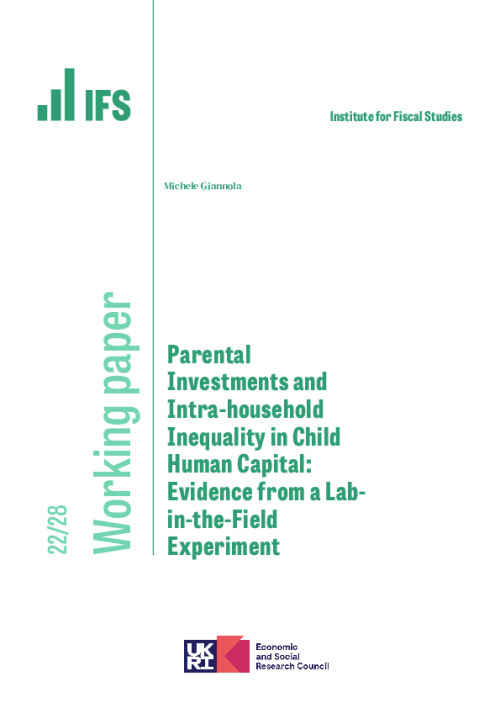Intra-household inequality explains up to 50 percent of the cross-sectional variation in child human capital in the developing world. I study the role played by parents’ educational investment to explain this inequality and its determinants. To mitigate the identification problem posed by observational data, I design a lab-in-the-field experiment with poor parents in India. I develop new theory-driven survey measures based on hypothetical scenarios that allow me to separately identify parental beliefs about the human capital production function and their preferences for inequality in children’s outcomes, as well as study the role of household resources. I find that parents are driven by efficiency considerations rather than inequality concerns over children’s final outcomes. Because they perceive investments and baseline ability to be complements in the production function, they invest more in higher-achieving children. Resources are important, as constrained parents select more unequal allocations. I then show that primitive parameters identified in the experiment are predictive of actual investment behaviour. The results indicate that families act as a reinforcing agent, magnifying ability-based educational inequalities between children.









